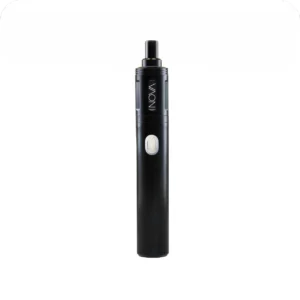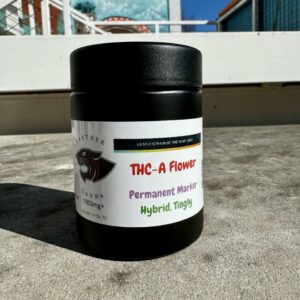THCA Flower
Showing all 3 results
-
Cipher Nova Pipe
Original price was: $149.99.$119.99Current price is: $119.99. — or Original price was: $149.99.$107.99Current price is: $107.99. / month -
Delta Munchies THC-A Diamond Infused Pre Rolls
Original price was: $39.99.$34.99Current price is: $34.99. — or Original price was: $39.99.$31.49Current price is: $31.49. / month -
Panther Canna Premium THC-A Flower
Price range: $39.99 through $74.99 — or from Price range: $35.99 through $67.49 / month
The Ultimate Guide to THCA Flower: Benefits, Usage, and Legal Status
As the cannabis industry continues to evolve, new compounds are gaining attention for their unique benefits and potential. One such compound is THCA (tetrahydrocannabinolic acid), which is rapidly emerging as a popular option for cannabis users seeking a raw, non-psychoactive experience. THCA flower refers to cannabis buds that are high in THCA, the precursor to THC (tetrahydrocannabinol), but not yet converted into its psychoactive form.
In this comprehensive guide, we’ll explore the science behind THCA, its potential benefits, how to use it, and its legal status. Whether you’re a cannabis connoisseur or a newcomer to the world of cannabinoids, understanding THCA flower will help you make informed decisions about incorporating this unique product into your wellness routine.
What is THCA Flower?
THCA flower refers to cannabis in its raw form, where the plant’s trichomes are abundant in THCA, rather than THC. THCA is the acidic precursor to THC, which means that it does not cause the “high” associated with cannabis use. However, when exposed to heat through smoking, vaping, or cooking, THCA is converted into THC, which then triggers the psychoactive effects. This process is called decarboxylation.
In its raw state, THCA is non-intoxicating and offers a range of health benefits that are distinct from THC. Many consumers are drawn to THCA flower because it allows them to experience the therapeutic effects of cannabis without the psychoactive experience.
The Science Behind THCA
THCA is one of the many cannabinoids found in the cannabis plant. Cannabinoids interact with the body’s endocannabinoid system (ECS), a network of receptors that plays a crucial role in regulating various physiological functions, including mood, sleep, appetite, and immune response. While THC primarily binds to the CB1 receptors in the brain, THCA interacts more subtly with the ECS and has different properties.
The primary difference between THCA and THC lies in their molecular structure. THCA has an additional carboxyl group (COOH) that is lost during decarboxylation when exposed to heat, converting it to THC. This structural difference is what prevents THCA from causing psychoactive effects.
Potential Health Benefits of THCA
Although research on THCA is still in its early stages, preliminary studies and anecdotal evidence suggest that this cannabinoid offers several potential health benefits:
- Anti-Inflammatory Properties
THCA is believed to have strong anti-inflammatory effects, making it a promising option for individuals dealing with chronic inflammatory conditions like arthritis, Crohn’s disease, and lupus. - Neuroprotective Effects
Early research suggests that THCA may help protect brain cells from damage, offering neuroprotective benefits that could be useful in the treatment of neurodegenerative diseases such as Parkinson’s and Alzheimer’s. - Anti-Nausea and Appetite Stimulation
THCA may offer relief for individuals dealing with nausea, making it potentially useful for those undergoing chemotherapy or dealing with conditions like irritable bowel syndrome (IBS). It may also stimulate appetite in a similar way to THC, without the psychoactive effects. - Analgesic Properties
Like other cannabinoids, THCA is thought to have pain-relieving properties. It may be beneficial for individuals dealing with chronic pain, migraines, or muscle spasms. - Antioxidant Effects
THCA exhibits antioxidant properties, which can help combat oxidative stress and may contribute to overall cellular health.
How to Use THCA Flower
There are several ways to incorporate THCA flower into your routine, depending on the effects you’re seeking.
1. Raw Consumption
One of the most unique aspects of THCA flower is that it can be consumed in its raw form, preserving the cannabinoid’s non-psychoactive benefits. Consuming raw THCA flower typically involves juicing the plant or adding it to smoothies and salads. When consumed raw, THCA retains all of its therapeutic properties without converting to THC, allowing for a wellness-focused experience.
2. Smoking or Vaping
While smoking or vaping THCA flower will decarboxylate the THCA into THC, this method is ideal for users who want the psychoactive effects of THC while starting with a fresh and high-quality THCA source. Once decarboxylated, the flower will provide the traditional “high” associated with cannabis, along with potential pain relief and relaxation.
3. Topicals and Tinctures
THCA can also be extracted from the flower to create topical treatments or tinctures. This method allows for localized relief, especially for those dealing with muscle pain, arthritis, or skin conditions. Topicals will not cause any psychoactive effects since they are applied externally.
4. Edibles
THCA flower can also be used to create homemade edibles. When baked or cooked at a specific temperature, the THCA will convert into THC, providing a potent and long-lasting effect. However, if you want to preserve the non-psychoactive properties, you can use raw THCA flower in cold recipes like smoothies, salads, or juices.
THCA vs. THC: What’s the Difference?
While THCA and THC are chemically related, they have distinct differences in both effect and usage.
- Psychoactive Properties
The most notable difference between THCA and THC is that THCA is non-psychoactive in its raw form, meaning it will not cause the high associated with cannabis. THC, on the other hand, is the compound responsible for the intoxicating effects of cannabis. - Health Benefits
Both THCA and THC offer potential health benefits, but THCA is often favored by those seeking anti-inflammatory, neuroprotective, or pain-relieving effects without the high. THC may be more suitable for those seeking pain relief, appetite stimulation, or relief from nausea, with the added effect of euphoria. - Methods of Consumption
THCA can be consumed raw, smoked, vaped, or used in tinctures and topicals. THC, on the other hand, typically needs to be decarboxylated (through smoking, vaping, or cooking) to activate its psychoactive properties.
The Legal Status of THCA Flower
The legal status of THCA flower can be complex and varies by jurisdiction. In the United States, THCA is not explicitly listed as a controlled substance under federal law. However, once it is heated and converted into THC, it becomes subject to the same legal restrictions as THC.
Federal Law
Under the 2018 Farm Bill, hemp-derived products containing less than 0.3% THC by dry weight are considered legal in the U.S. THCA flower falls into a legal gray area because while the raw flower contains minimal THC, the conversion to THC through decarboxylation can make it illegal in certain states or under federal law.
State Law
Some states have more lenient cannabis laws, allowing for the legal sale and consumption of THCA flower. However, others may regulate or outright prohibit THCA flower if it can be used to produce THC. It’s essential to check your state’s specific cannabis laws to determine the legality of purchasing and using THCA flower.
Choosing High-Quality THCA Flower
When purchasing THCA flower, it’s essential to choose high-quality products from reputable sources to ensure safety and potency. Here are a few tips for selecting the best THCA flower:
- Check for Third-Party Lab Testing
Reputable cannabis companies will provide lab results that detail the cannabinoid content, including THCA levels, as well as information on any contaminants such as pesticides or heavy metals. - Examine the Appearance and Aroma
High-quality THCA flower should have a vibrant color, often with visible trichomes (the crystal-like structures that contain cannabinoids and terpenes). The aroma should be fresh, earthy, and pungent, indicating that the flower has been properly cured. - Consider the Source
Choose organic, pesticide-free THCA flower whenever possible to ensure that you’re consuming a clean, high-quality product. Products that are grown sustainably and with care are generally superior in both potency and flavor.
Conclusion
THCA flower offers a unique way to experience the benefits of cannabis without the psychoactive effects of THC. Whether you’re seeking relief from inflammation, pain, or neuroprotective benefits, THCA is a versatile and promising cannabinoid. As the cannabis industry continues to evolve, THCA flower is likely to become a staple product for those looking for a wellness-focused cannabis experience.
At Panthercanna, we pride ourselves on offering high-quality, lab-tested THCA flower that meets the needs of both seasoned cannabis enthusiasts and those exploring cannabinoids for the first time. Explore our wide selection of THCA flower and discover a new way to harness the power of cannabis.


